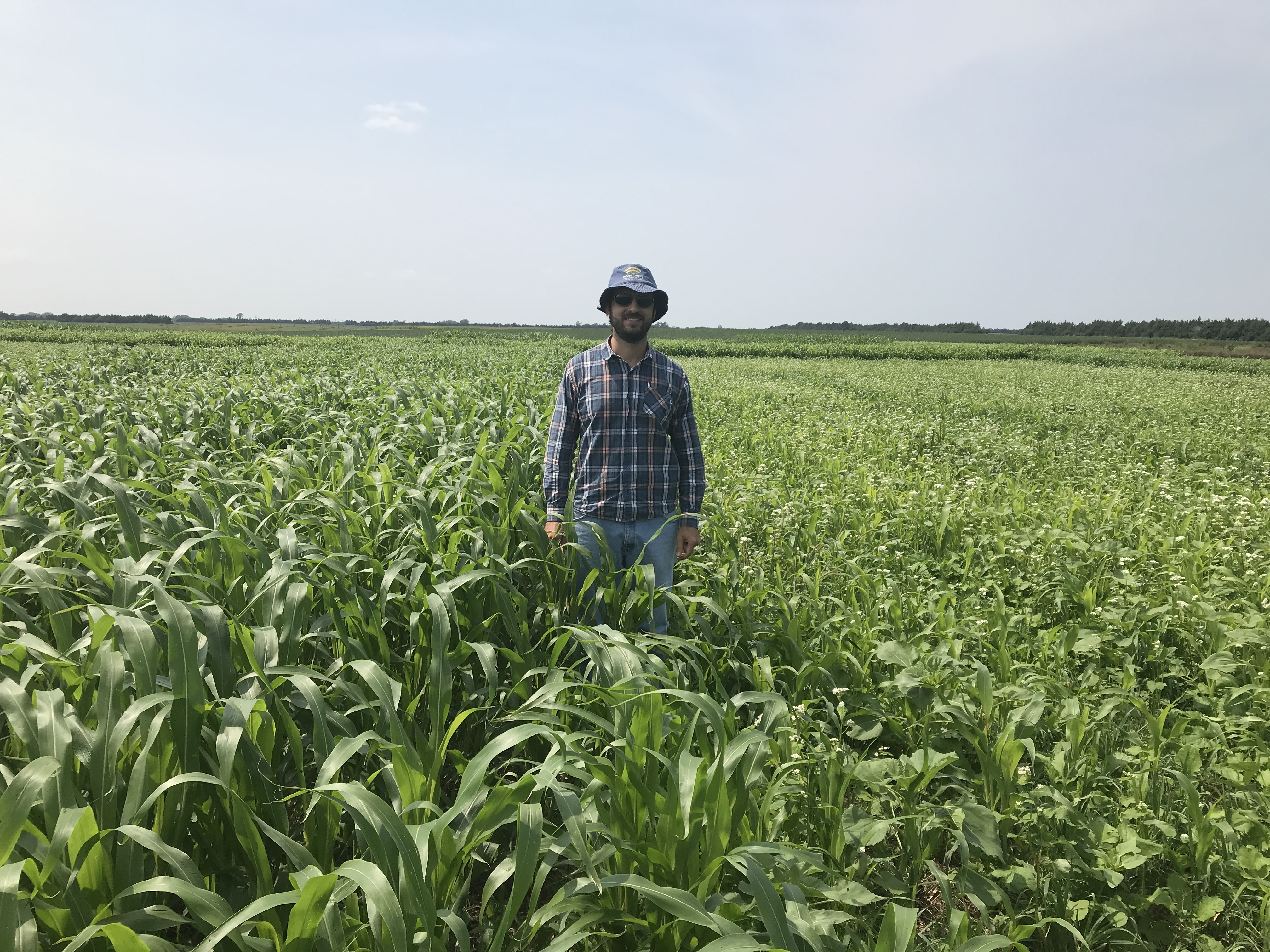This is a continuation of our "IANR is Global" series, which highlights the many ways internationalization is woven through the Institute of Agriculture and Natural Resources: through research collaboration, government and private industry partnerships, extension work, student educational experiences and the IANR community from around the world.
This edition is specifically focused on the many global voices we have on campus who will be sharing their expertise through seminars during 2020 and beyond. Last week, graduating doctoral student Alexandre Tonon Rosa successfully defended his dissertation entitled "Influence of Cover Crop Management Practices on Rainfed Corn Production in Semi-Arid Western Nebraska." We appreciate the expertise we are fortunate to have from all over the world, as shown by their many and varied contributions to the work of the university and our continued mission to create a globally engaged institution. To this end, we want to help our campus community get to know each other (and the world) more, starting with these experts.
Where is your hometown? Where did you receive your education?
My hometown is Uruguaiana, Rio Grande do Sul state, Brazil. I received my B.S. in Agronomy at the Federal University of Rio Grande do Sul and my M.S. in Soil Science at Kansas State University.
Tell us a little about your path to where you are now.
My family grows flooded rice in southern Brazil. Therefore, I was always around agronomists and farmers. With that, I decided to pursue my bachelor’s degree in Agronomy. To fulfill my dream of going abroad, I decided to come to the US to do an internship on a farm in North Dakota in 2012. That opportunity opened the door to another one: my MS Degree in Soil Science. After my MS graduation, I went back to Brazil to work with my family. However, I wanted to pursue a Ph.D., and again because of networking, I connected with a professor at UNL to continue my studies.
What led you to your interest in studying internationally, or your current research topics?
I always dreamed of studying abroad. During my undergraduate, I started to look for opportunities where I could combine my professional career with my aspirations of learning in a different country. In this scenario, the US and Brazil are very similar in terms of agriculture where the US is a reference for the Brazilian farmer/agronomist. Thus, I wanted to know more about US agriculture and build up my knowledge with experiences abroad by combining my duty with my dream.
What is something people don’t know (or that you wish they knew) about where you’re from?
Brazil is a huge country with continental dimensions (just like the US). Our agriculture is very strong and a reference to the world especially in terms of environmental conservation. In this scenario, my hometown is the biggest rice producer in Latin-America and a well known grass-fed beef producer.
My state in Brazil drinks mate (pronounced "mah-tay"), a typical drink from Paraguay, Argentina, and Uruguay. The countryman is called “gaucho” which is very similar to the North American cowboy.
Why is it important for institutions like the University of Nebraska to have faculty, staff, and students from or with experience from different parts of the world?
Having people from different parts of the world brings diversity to campus. I believe that people with different backgrounds contribute to our education, professional development, and life experiences. I had the chance to meet people from all over the world and learn from them. Besides, by having connections with people from different cultures you get to know the world without traveling.
What is one piece of advice you would share with students?
I would encourage students to pursue their best during their time at UNL. Do not be afraid about negative feedback (remember that those are the ones that make us grow). We are here to learn and our mentors know that. Just be eager to learn and collaborate with others to improve yourself and take as much as possible from this opportunity.
---
Are you giving a seminar in 2020 (or the future) and have an international element to your work, studies or background you'd like to see highlighted? Contact Brianne Wolf at bwolf4@unl.edu.
